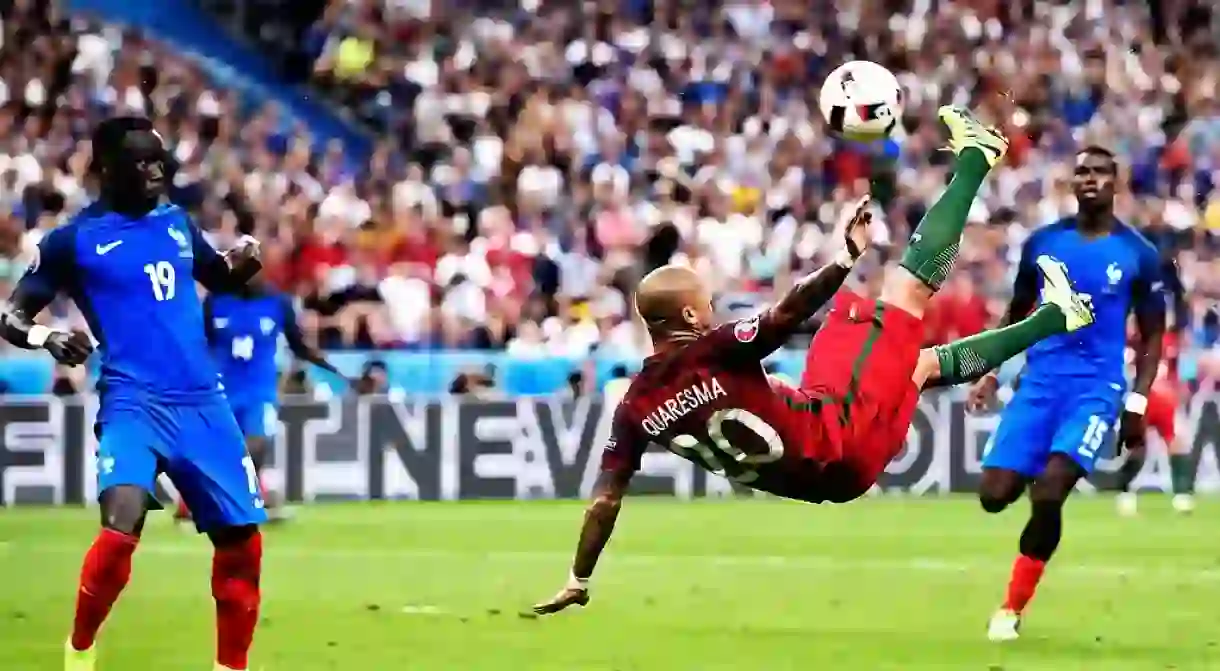A French Website is Updating Readers on 'Fake' Football News

Between earnings that have investment bankers blushing, firings that make The Apprentice look like a how-to guide for fond farewells, and nonstop analysis in newspapers, offices, homes, and bars around the world, football’s a serious business, don’t you know? For Football France the job is to always show the funny side of the beautiful game, and Culture Trip asks the parody website’s co-founders how it feels to be fake news’s comedy cousin.
Football France, the sideline creation of Martin Tran—the social media guru of French television channel TF1—and Thomas Doridam—an old hand at sports marketing and sketch writing—made its debut back in September 2013. An immediate fan favorite, it now boasts over 145,000 followers on Facebook and a monthly readership several times that. The two 30-somethings have always shared a passion for football and online hijinks.
‘Thomas and I really liked what parody sites like The Onion and Gorafi were doing,’ Tran told Culture Trip. ‘We saw that it was working very nicely for them, so we asked ourselves, “Why not?”, and launched the site in three days. In terms of ambition, it was simple: we didn’t have any, aside from making people laugh.’

Le Gorafi is France’s foremost satirical news site. Also inspired by The Onion, it sprang up during the presidential elections of 2012. (For anyone lacking an eye for anagrams and an interest in French current affairs, its name is a nod to Le Figaro, the country’s oldest newspaper.)
From the outset, Football France, too, had a clear inspiration in the form of France Football, a popular weekly magazine, and originator of the Ballon d’Or award for European footballer of the year. In addition to the easily confused names, the two share a red and white colour scheme, simple online layout, and penchant for reader surveys.
Despite these similarities and Football France’s consistently, and obviously, ironic tone, its stories are repeatedly picked up and reported as fact by mainstream media outlets. In November 2013, Le Figaro Économie, the newspaper’s online financial supplement, republished its hoax story about channel D8’s pitch to broadcast the national team’s matches with its star presenter, comedian Cyril Hanouna, as the lead commentator as an exclusive. Just last month, the Journal du Dimanche (JDD) reprinted the completely made-up relationship between the former Baywatch actress Pamela Anderson and FC Metz striker Nolan Roux on its ‘People’ page According to Football France, Roux was her rebound from her widely publicized fling with Olympique de Marseille defender Adil Rami.
One would think the website’s ‘About Us’ section at the foot of every page would be enough of a giveaway for savvy journalists, but no. It reads: ‘Even if the editorial team of FootballFrance.fr relies on the news to write its content, nothing of what is present on this site is true, the people interviewed for the needs of the articles do not exist, everything is false.’

The process for cooking up these humorous falsehoods is simple.
‘One of us gives the other his idea, he then gives his opinion and optimises and/or validates it,’ Tran explained. ‘The article is then written, reread by the other, then put online and shared on social networks. On the ethical side of things, we avoid insulting or denigrating anyone; our aim is to make people laugh, not to give any “political” opinions.
‘[W]e have the luck of being in a country where parody sites work, and in addition, we chose football, a subject which everyone speaks about. It’s enough for us to find the right angles, to write the right things and the right punchlines at the right time.’
It’s certainly true that the French have a ravenous appetite for endlessly discussing all things football, especially over half pints of 1664, one that the site is only too happy to feed.
‘It’s even the sport that’s the best suited to this type of article,’ according to Tran. ‘We could parody tennis news but, frankly, who’d really be interested in that? People watch Roland Garros, and that’s it. Everyone knows football, everybody talks about football, everybody gives their opinion on football.
‘You only have to look at all the madness around Neymar’s arrival at PSG: everyone has spoken about it, saying everything and nothing. We, at Football France, content ourselves with adding a layer of nothing.’
The arrival of the Brazilian player at Paris Saint-Germain, and specifically the €222 million ($261,452,730.00) transfer fee paid to Barcelona to ensure it has indeed caused more than a few headlines. However, none of them are as eye-catching as that of Football France: ‘Neymar Finds the Cost of Living Too High in Paris’.
The article goes on to quote a fictional Neymar bemoaning the sky-high price of a baguette (€1) ($1.18) among some other less savory expenses that have been brought to his attention.

Tran and Doridam are keen to draw a distinction between what they do with this kind of article and the raison d’être of fake news websites.
‘For us, the purpose of a fake news article is to mislead readers, to deceive them, so that they are indignant… Football France articles cannot be taken seriously, and should not be taken seriously. Our titles are too questionable to be taken seriously. If they are taken seriously, then we have done a bad job.
‘And this position has been reinforced since the fake news affair around the election of Donald Trump. Again, we are not here to deceive people or the media: from the beginning and to this day, we are here quite simply to magnify the features of football to make people laugh, whether they are fans of football or not.’
That they most certainly do, not only with the website but on their Facebook page, Twitter account, and 2016’s book, Le livre FootballFrance.fr, as well













